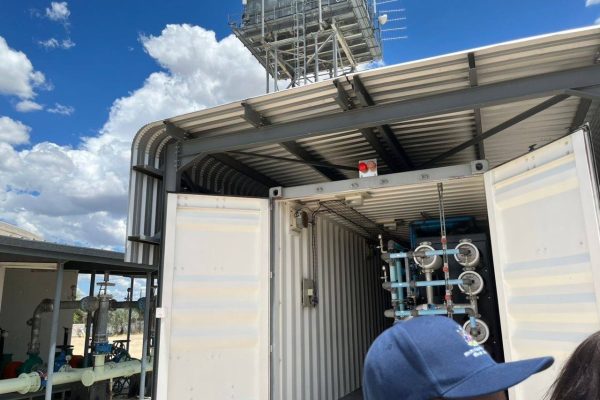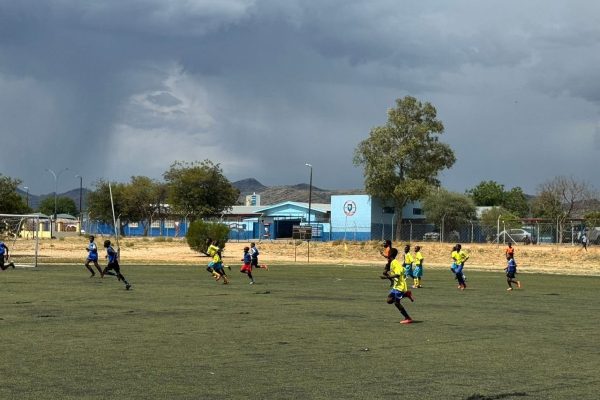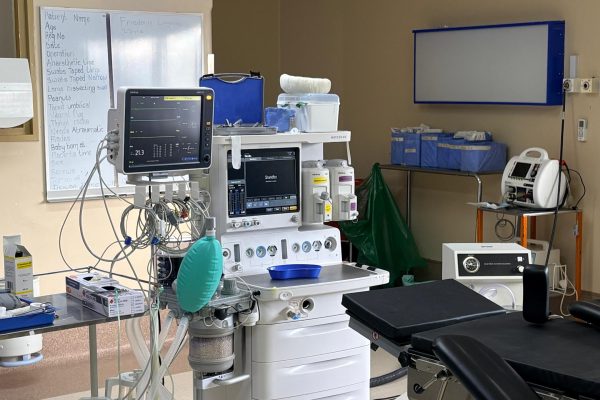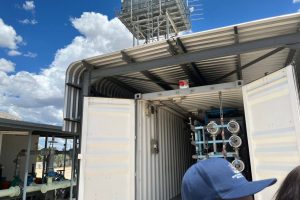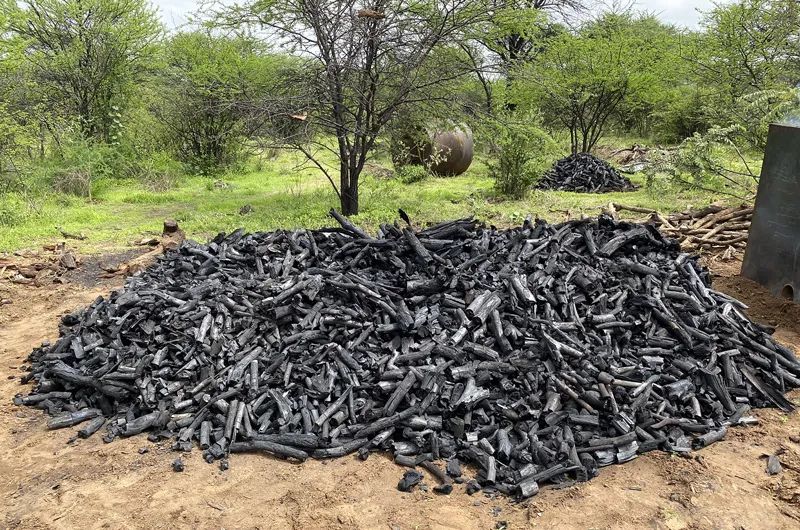
By: Patemoshela Lukolo
Full-time charcoal producer Vitjitua Uaendere, based in the Okahandja district of the Otjozondjupa Region, notes how the growing industry is transforming the lives of workers and their communities, but success requires patience, dedication, and careful management.
“I’ve seen people change their lives. They can buy clothes, send money home, and feed their families,” Uaendere told Eagle FM. “Most of my workers are from the north; they support their parents, grandparents, and children. This work truly uplifts households,” he added.
Uaendere has invested heavily in worker welfare, building weather-resistant housing, installing solar systems, shaded cooking areas, and adequate bathing facilities. He said these improvements not only respect human dignity, but also improve productivity.
“The more rested your workers are, the more productive they become,” he indicated.
He has also gone beyond the ministry’s safety requirements. His centralised burning area spans nearly 100 metres in radius, exceeding the recommended 60 metres and surrounding areas meant to be cleared and graded to reduce fire risk. Firebreaks and widened access roads further help contain potential incidents.
“It’s good practice because it prevents fires. If a burning pot is too close to dry grass, one spark could destroy your farm and those of your neighbours,” he said.
Uaendere stressed the need for patience and resilience for new entrants, sharing that “Working with people is the hardest part. You deal with different cultures, languages, and education levels. Many workers don’t fully understand the regulations until you explain repetitively. You have to stay patient. It can be financially, physically, and mentally draining, but if you trust the process, you’ll thrive in this industry.”
Despite these challenges, Uaendere noted that charcoal production offers economic and environmental benefits – even with the release of carbon. Controlled clearing of bush-encroached land allows grass to regrow, increasing livestock carrying capacity, while employment opportunities help households build livelihoods.
The Ministry of Environment, Forestry and Tourism (MEFT) is exploring ways to expand charcoal production into communal areas while maintaining strict environmental and safety standards.
Environmental Commissioner Timoteus Mufeti said the ministry is developing a framework to enable communal farmers to participate in the growing industry without harming the environment.
“We are not yet giving permits there, but we want to. Studies and assessments are being done to see how we can allow communal farmers to join, under strict conditions,” Mufeti said.
Currently, only the director of forestry may issue permits for the commercial use of forest resources such as firewood and charcoal. These permits are limited to community forests and leasehold farms, excluding open communal lands and conservancies.
The proposed framework sets out safety and environmental measures. It bans earth mound charcoal production, restricts burning within one kilometre of homes or major roads, and requires all workers to undergo basic firefighting training.
Mufeti highlighted the industry’s growth and economic contribution, stating that “The industry is becoming profitable and is contributing to our economy. Some even refer to it as a ‘black diamond,’ and Namibian charcoal is becoming a preferred product internationally,” he remarked.
Statistics show a 42% increase in tonnage and a 66% rise in production value last year, with employment growing from around 6,000 to 10,000 workers in 2024.
Both Uaendere and Mufeti emphasised the need to balance growth with sustainability.
“We are burning wood, yes, but we’re also clearing land so grass can grow again. That improves grazing and increases the number of animals your land can support,” Uaendere stated.
The ministry’s framework ensures that harvesting rules are followed: trees larger than 18 centimetres cannot be cut, and protected species are left untouched. Mufeti added that regular inspections accompany permits to maintain compliance.


